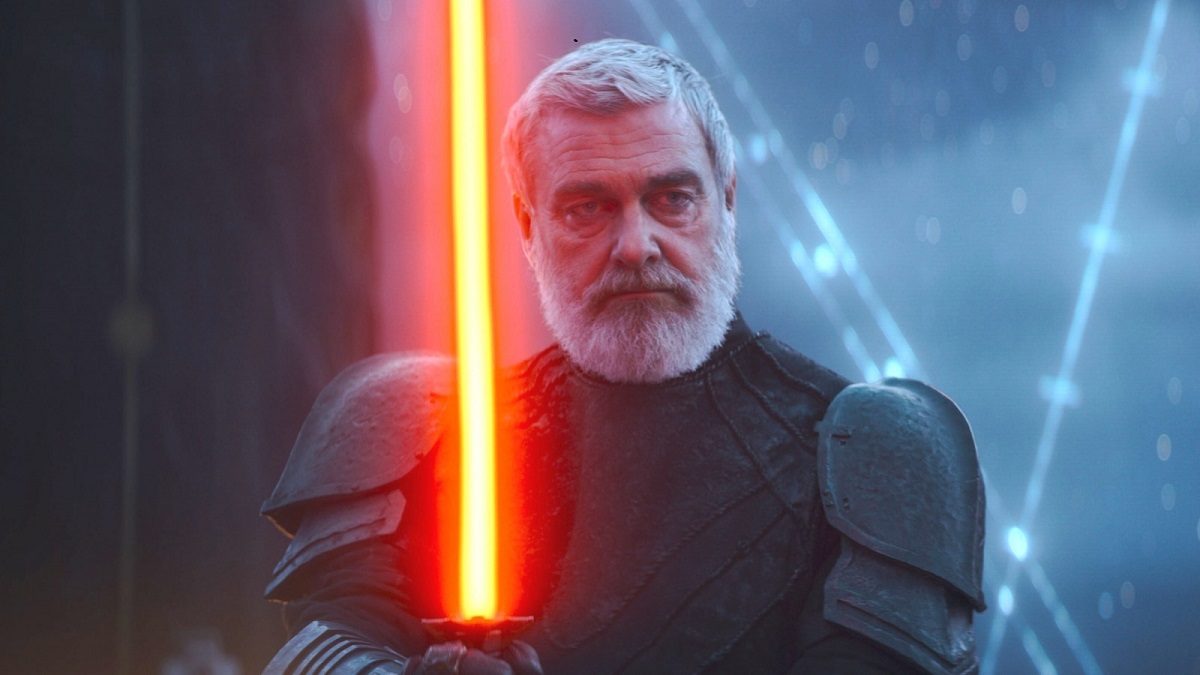Whenever you see an argument between Star Wars lovers online, it often feels like that Groundskeeper Willie joke from The Simpsons about how “Scots ruined Scotland.” Looking at the fandom from the outside (and from the inside, if we’re honest), it appears that nobody hates certain parts of the Star Wars universe more than fans of the franchise themselves. And, with today’s debut of Star Wars: Ahsoka, this truism is once again being borne out — with most of the vitriol, it seems, being spun by those who loved last year’s smash hit Star Wars: Andor, albeit as a reaction to some needless Andor slander from those who loved the opening two episodes of Ahsoka.
Perhaps all of our brains have been melted by being far too online for far too long, but the loudest and most prominent voices on social media tend to lean towards a school of thought that says if a piece of content doesn’t speak directly to their likes and their life, then it’s problematic, or just plain bad. The funny thing is, both Ahsoka and Andor are actually very solid shows, albeit very different ones. It’s almost like television doesn’t have to cater to everybody, all the time to still be good and mean something to viewers.

If anything, the writers who have been producing the recent Star Wars content should be proud of themselves for crafting two vastly different shows that are both incredibly good at what they do. The Andor creators managed to make a slower burning political series with a lot more grit than the Star Wars fandom may have been used to, while still keeping it captivating and diving into the weeds of the history of the Empire from an everyday perspective (a tonal shift that is much harder than it seems, if the underwhelming MCU attempt at a neo-noir thriller Secret Invasion is anything to go by).
Contrastingly, Ahsoka is much more fast-paced (once we get through the first half of the first episode, at least), hitting the ground running while also providing a lot more humor than the more serious Andor. There’s a lot more fan service too, unlike Andor, which could almost work as a standalone piece. Ahsoka, by contrast, is also bathed in the more mystical aspects of Star Wars lore, and requires some knowledge about previous in-universe content (notably Rebels) to truly understand. Both shows are also lifted by brilliant performances and, while there are only two episodes of Ahsoka out at the time of this article being published, the writing so far is snappy and smart, unlike the more cerebral but still brilliant writing we saw in last year’s major new Star Wars release.
Most fandoms that receive two top quality shows in a year would likely be happy at the outcome, especially as we see other big budget franchises like Marvel and DC continue to pump out mediocre content. Yet, Star Wars lovers are simply built differently, and plenty of them are relishing the chance for in-fighting instead of celebrating an extended universe that’s actually offering a diverse breadth of good content.

On the one hand, there are plenty of Andor fans who seem convinced that because the show had more mature themes and doesn’t rely so much on a previous understanding of the Star Wars universe to hook new viewers, it’s better television. While the snob in me is inclined to agree, it’s also true that good TV doesn’t only consist of hour-long HBO shows, and shorter, snappier, and less serious series’ can be just as good in terms of quality (after all, seasons two to eight of The Simpsons exists, as does the outlandish and generally poor last half of The Wire‘s final season).
The “realism” (in the loosest sense of the word, as after all this is an article about Star Wars) of Andor isn’t the only reason people like it, too, despite what some reviewers seem hellbent on implying with needless mentions of last year’s release. Fans of the Diego Luna-led show were quick to point this out.

Many also noted that Andor is, in fact, heavily driven by Star Wars lore, albeit from more of a historical rather than supernatural or magical perspective. In many ways, it could even be argued that it has more for Star Wars nerds in it than Ahsoka will because of the way the show is structured and will continue to develop.
Of course, among all the infighting, there are some normal fans who are just happy to see more top notch Star Wars content coming out, even if admitting so might make them a target for those who’ve settled into their two camps.

With that all said, there is no doubting that, despite their shared universe, Andor and Ahsoka are two vastly different viewing experiences, But, as many have pointed out, that’s not necessarily a bad thing — especially for long time fans of the franchise.

Plus, as more level-headed social media users have pointed out, this isn’t a Star Wars specific thing. People simply like what they like, for various different reasons, and pitting shows against each other will never lead to a productive discussion as people love to dig their heels in (especially online, where there are no real consequences for overreactions and dramatzing arguments).

As always, it appears that those with the strongest views and biggest compulsion to seek attention are the ones who are getting the most traction online. Given that Andor currently has an RT rating of 96% and Ahsoka‘s opening episodes are at a very respectable 8.6/10 on IMDB, it’s likely that most fans are simply sitting back and taking in the brilliant content that we’ve been missing from the Star Wars universe since the first season of The Mandalorian. Let’s hope it stays that way, although given the history of the Star Wars fandom, we’re not hopeful.

